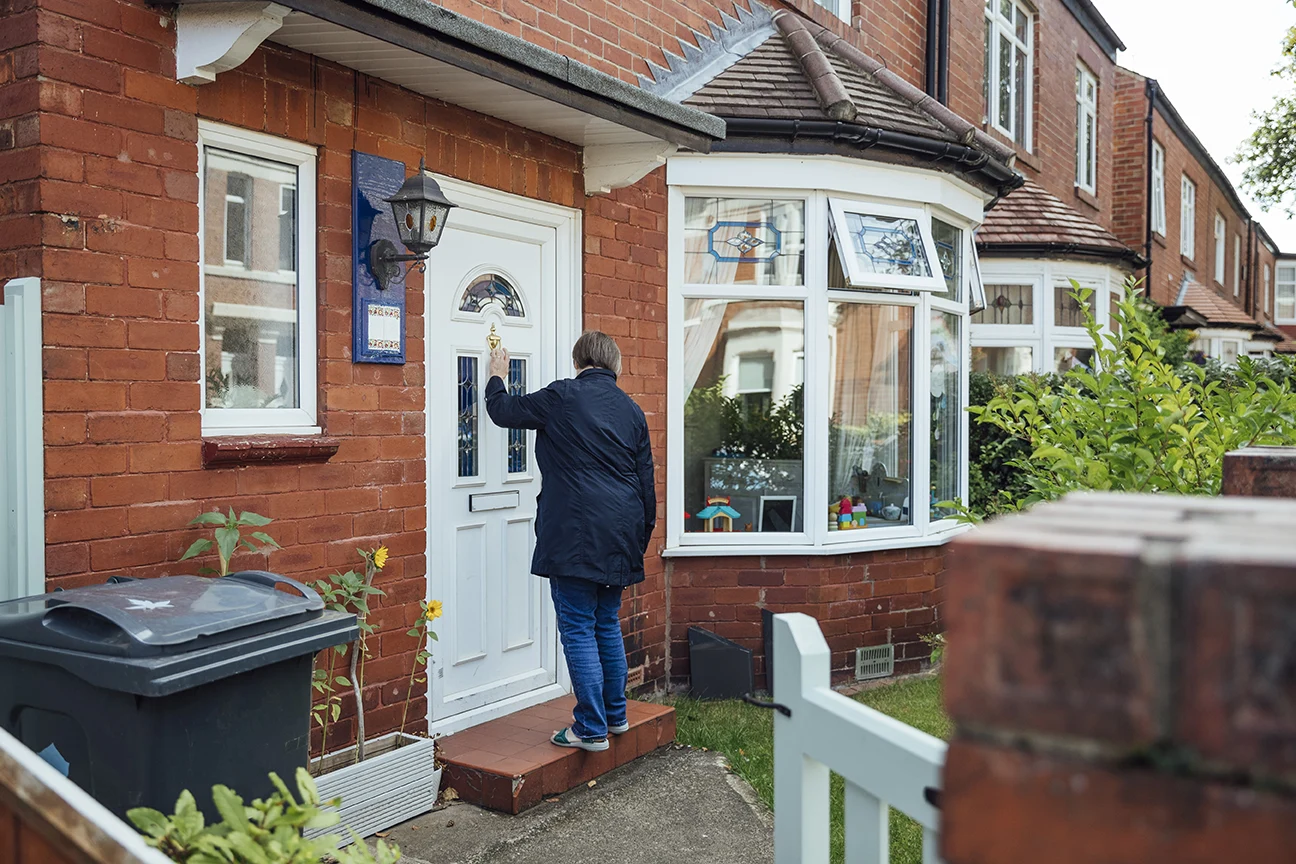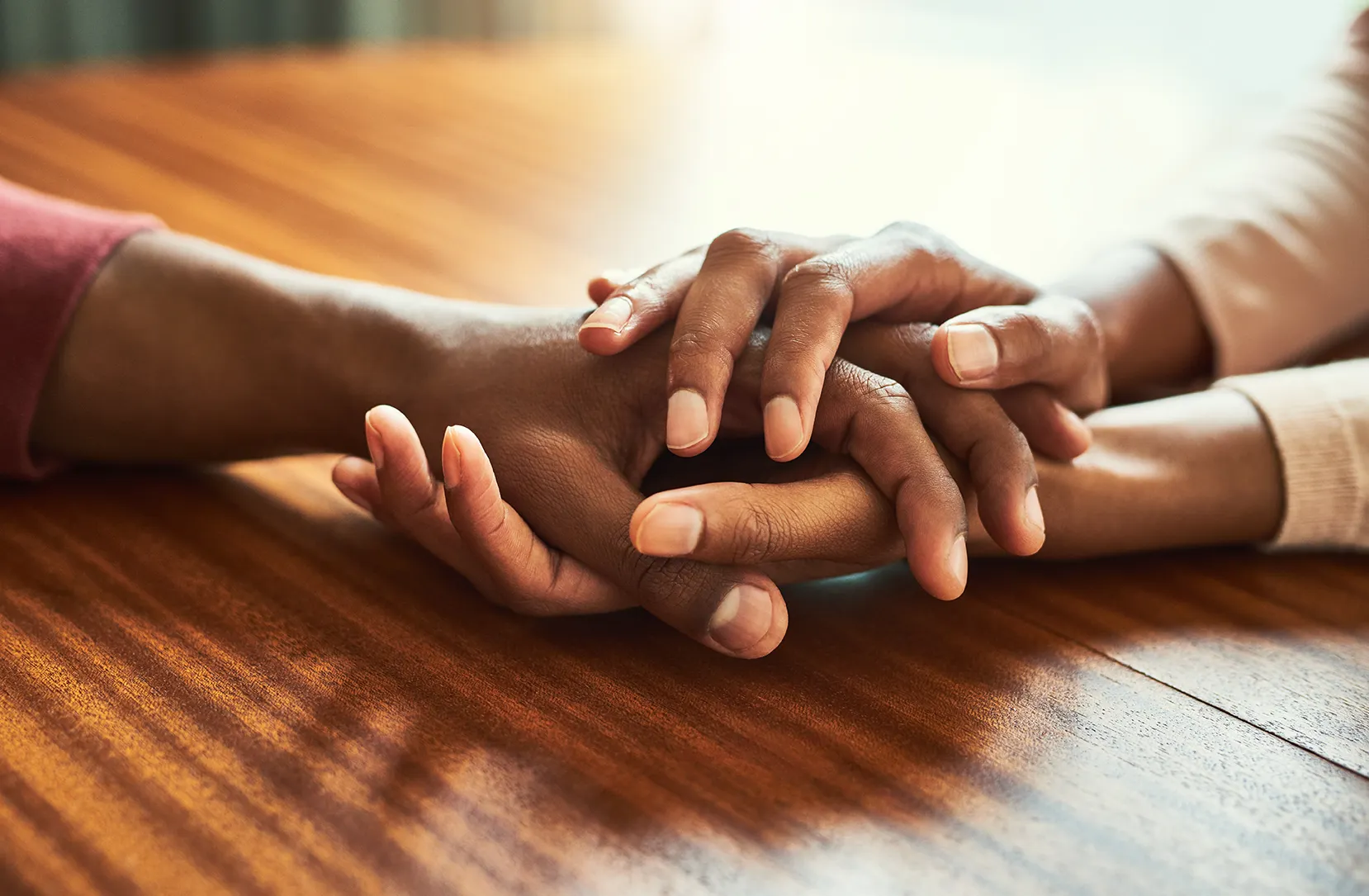Some experts say that living a life with meaningful social connections—that is, the feeling that you belong to a group and generally feel close to other people—may be getting more difficult to attain for several reasons, including time spent on social media, political polarization and the attrition of friends as we age.
In fact, former U.S. Surgeon General Vivek Murthy, M.D., MBA, declared in 2023 that the country is experiencing a loneliness epidemic. Loneliness has significant consequences on our physical and mental health.
ORAU senior health education specialist, Kristin Mattson, shares what we as individuals can do to combat loneliness in our own communities.
ORAU weighs in on the loneliness epidemic—check on your friends
In his book, Together: The Healing Power of Social Connection in a Sometimes Lonely World, Murthy writes that loneliness leads to a 29% increased risk of heart disease, a 32% increased risk of stroke, and a 50% increased risk of developing dementia in older adults. Lack of social connection increases risk of experiencing mental health issues,including substance use disorders, depression, anxiety and stress by as much as 60%. Overall, loneliness increases the risk of premature death by more than 60%, as much as smoking up to 15 cigarettes a day, Murthy said.
Loneliness and feelings of isolation are not just adult problems. These feelings may be most prevalent in adolescents, 70% of whom say they experience recurring feelings of loneliness much of the time, according to the National Institutes of Health.
Despite these dire statistics, there is hope through the power of connection.
ORAU experts have been demonstrating the power of connection for decades using a community-based approach to their work with several populations, including people with substance use disorders, people experiencing homelessness, women who are pregnant and post-partum and youth and adolescents.
“We know that loneliness and isolation contribute substantially to mental health challenges,” said Kristin Mattson, ORAU senior health education specialist. “The risk of developing depression among people who report feeling lonely is often more than double that of people who rarely or never feel lonely.”
Mattson does her job remotely. She lived in Minnesota, where she didn’t have friends or family nearby. She got pregnant with her son, Noah, and thought she would make “mom friends” from day care, play dates and mom’s day-out events.
Then the pandemic hit.
“All of those plans I had to develop these friendships and get out of that feeling of being isolated, those dreams came crashing down because all of the mom groups, the meetups, all of those were canceled. My son couldn’t get into a day care because day cares weren’t accepting new kids at the time,” Mattson said.
“I remember feeling extremely depressed to the point where I had to seek out help from my health care provider,” she said. “It really, truly impacted me on a day-to-day basis, so much so that I ended up moving back to Florida. Florida is where my family is, it’s where I grew up, and so I felt that to be the best version of myself, for my family, for my son, I needed a community of people who could support me and lift me up. I can’t even begin to tell you what a difference it has made just reestablishing those connections."
Connection and substance use disorders
“Connection with others clearly matters in reducing both feelings of loneliness and isolation. Mental health and substance use disorders are often linked and share some of the same risk factors, including trauma, stress, and genetic predisposition,” said Jennifer Reynolds, ORAU senior manager of health communications, marketing and promotion.
ORAU has worked over the past 15 years on projects that demonstrate the power of connection through the development of community-based campaigns, technical assistance projects, peer support tools and resources that reduce stigma around substance use disorders.
For the past five years, ORAU has supported the HEALing Communities (or Helping to End Addiction Longterm) Study of the National Institute on Drug Abuse and the Substance Abuse and Mental Health Services Administration.
“We partnered with community coalitions and all four of the research sites—University of Kentucky, the Ohio State University, Boston Medical Center and Columbia University—to design campaigns on a range of topics,” Reynolds said. “Topics like educating individuals on how to carry and use naloxone to assist someone experiencing an overdose, available medications for treating opioid use disorder, and steps that can be taken at the community level to reduce stigma.”
The team helped expand local capacity to engage communities through the creation of 8,000 campaign materials tailored to different audiences, including organizations that treat substance use disorders, dental and primary health care providers, community organizations and individuals and families struggling with substance use. ORAU’s health communication team also created a one-of-a-kind YouTube library of stories of people struggling with substance use who share their advice for how to enter treatment and sustain recovery over the long term. “A common saying in recovery spaces is that ‘the opposite of addiction is not sobriety, but connection.’ We’ve been honored to work with national, state, and local partners for more than a decade, to help people access evidence-based treatment and to build the environments and connections that help individuals and families truly heal.”
Mental health and pregnancy-related death
The leading cause of pregnancy-related death in the U.S. is mental health conditions, including suicide and overdose related to substance use, Reynolds said. That’s why she’s excited about new work focused on maternal and infant health funded by the Centers for Disease Control and Prevention’s (CDC) National Center for Birth Defects and Developmental Disabilities and the Division of Reproductive Health.
ORAU has partnered with Faces and Voices of Recovery, a nonprofit recovery advocacy organization, to create peer support training focused on ways to best support women who are pregnant and postpartum and parents of children up to the age of two.
“The ORAU team has spent the past year doing formative research, including literature reviews, surveys, convening an expert advisory group and doing focus groups with pregnant and postpartum women facing substance use challenges.
“We are learning that three-to-six months postpartum is an especially dangerous time when new parents are at high risk for returning to use and subsequent overdose death. Trained peer supporters can truly save lives by providing nonjudgmental support when it's needed most,” Reynolds said. “Armed with all of those insights, we are ready to create the training program in 2025, and we can’t wait.”
Adolescents and the role of connectedness

ORAU has worked for more than a decade with the CDC’s Division of Adolescent and School Health (formerly CDC’s School Health Branch) to create and promote tools and resources that schools and parents can use to increase connectedness among youth, including through family engagement and community involvement, professional development opportunities for staff and promoting involvement in school-led clubs and sports activities.
“We know that connectedness is an important protective factor for student health,” Mattson said. “Students who feel more connected are less likely to engage in risky behaviors, including violence, sexual activity that could lead to teenage pregnancy or sexually transmitted diseases, and substance use. The ones who feel connected are more likely to engage in positive health behaviors like physical activity and healthy eating. They are also more likely to have higher grades, higher test scores and better school attendance and are more likely to graduate from high school.”
Mattson said this work serves as a primary prevention opportunity for youth by helping them combat loneliness and feelings of isolation and create strong bonds with people at school, their peers and teachers.
“Our youth spend most of their time in schools. So schools really are an ideal place to implement these types of primary prevention measures.”
Reversing isolation and lack of connectedness
So how do we reverse the epidemic of loneliness? ORAU’s experts contend the answer is in seeking real, live connection.
Screen time, especially social media, can be a contributing factor to heightened mental health and isolation issues, said Reynolds.
“Social media can be a helpful tool to connect with old friends or find local interest groups or volunteer opportunities. But too many people, especially young people, are using social media excessively and at the expense of forming real social relationships. We’re very quick to compare ourselves to influencers or others online. Their lives look and sound better than ours, and we aren’t keeping up. That comparison game can take a toll on our mental health,” Reynolds said.
Community organizations and support groups, church activities, volunteer opportunities and hobby clubs can be great starting points for finding connection with other people—whether you’re a student, a pregnant mother struggling with mental health issues, or someone generally struggling with substance use disorder. If joining a new group is outside of your comfort zone, Reynolds recommends leaning into the people in your life, even if you’re not particularly close to them.
“Call and check on someone,” she said. That simple act can make a world of difference and may be the start of a new connection that could save someone, possibly even save their life.
She added that government agencies and other public health and philanthropic foundations should prioritize funding local communication and capacity-building initiatives to combat the loneliness epidemic. “Investing in programs that foster inclusive connection and collaboration with organizations already addressing some of the public health issues we spoke about ensures that we’re creating culturally relevant, accessible, and sustainable solutions will that ultimately lead to enhanced resilience and healthier, happier populations.”
